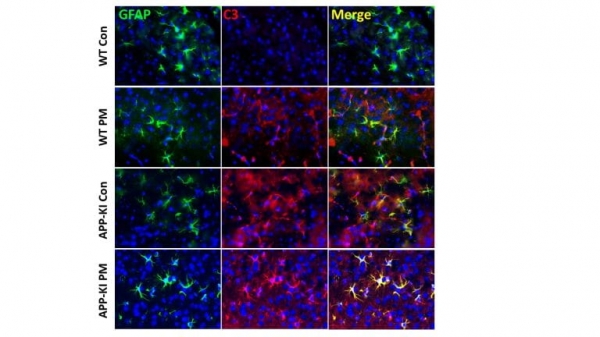Researchers from the University of California, Irvine have found that exposure to traffic-related air pollution in Irvine led to memory loss and cognitive decline and triggered neurological pathways associated with the onset of Alzheimer’s disease.
Researchers from the University of California, Irvine have found that exposure to traffic-related air pollution in Irvine led to memory loss and cognitive decline and triggered neurological pathways associated with the onset of Alzheimer’s disease.
“The link between air pollution and Alzheimer’s disease is concerning, as the prevalence of toxicants in ambient air is not just on the rise globally, but also hitting close to home here in Irvine,” said corresponding and senior author Masashi Kitazawa, Ph.D., associate professor of environmental and occupational health in UCI’s Program in Public Health. “Our findings are just one example of what particulate matter can do to brain function.”
The study’s results are published in the journal Toxicological Sciences.
Alzheimer’s disease is the most common cause of dementia among the elderly and is a growing public health crisis in the U.S. as well as several other countries. Despite extensive research on all aspects of Alzheimer’s disease, its exact origins remain elusive. Although genetic predispositions are known to play a prominent role in disease progression, growing bodies of evidence suggest that environmental toxicants, specifically air pollution, may cause the onset of Alzheimer’s disease.
Read more at: University of California - Irvine
The brains of wild type (WT) and Alzheimer’s (APP) mouse models were analyzed after exposure to purified air (Con) and ultrafine particulate matter (PM) for the presence of astrocyte cells. These were visualized by staining them green (left column), with potentially harmful and activated astrocytes appearing in red (middle column). Merged images (right column) indicate in yellow the prevalence of deleterious astrocytes in the brain, suggesting that exposure to ultrafine particulate matter significantly promotes activation of astrocytes in the brains of Alzheimer’s mouse models. (Photo Credit: UCI Program in Public Health)




